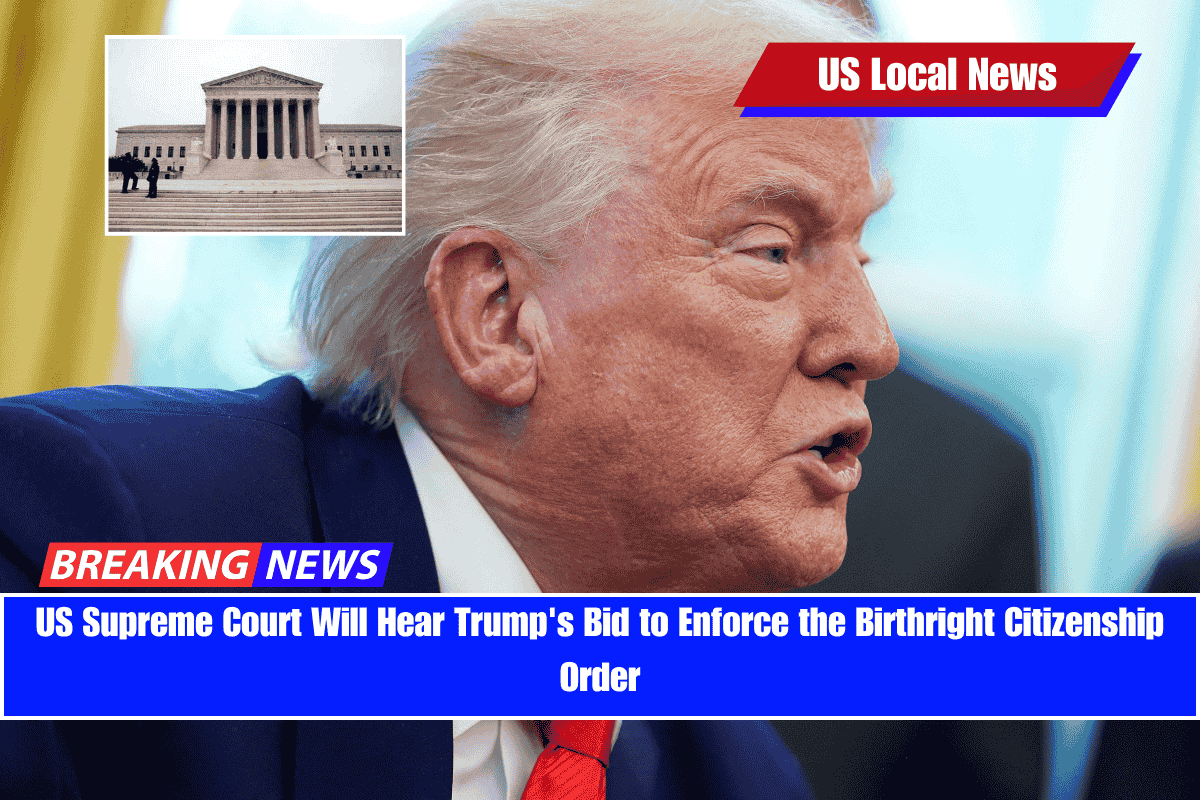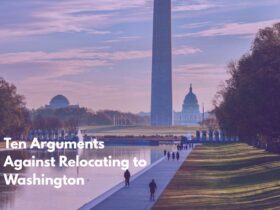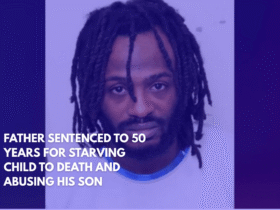The U.S. Supreme Court will hear arguments on May 15, 2025, about a controversial executive order from President Donald Trump that seeks to restrict automatic birthright citizenship in the United States.
The order, signed by Trump on his first day back in office in January, would deny citizenship to children born in the U.S. unless at least one parent is a U.S. citizen or lawful permanent resident.
The case has sparked major legal and political debates across the country, especially as it involves one of the most deeply rooted rights in the U.S. Constitution — the 14th Amendment’s Citizenship Clause.
What Does Trump’s Executive Order Say?
President Trump’s executive order directs government agencies to not recognise children born in the U.S. as citizens if neither parent is a U.S. citizen or green card holder. This move has been blocked by nationwide court injunctions issued by federal judges in Washington, Massachusetts, and Maryland.
Despite this, the administration asked the Supreme Court to limit the effect of these injunctions, but the justices have decided to wait until they hear full arguments next month.
Why Is the 14th Amendment Important?
The 14th Amendment, passed in 1868, states that anyone born in the U.S. is a citizen. This law has been used for over 150 years to ensure that birth on U.S. soil guarantees citizenship, regardless of the parents’ immigration status.
Supporters of birthright citizenship — including 22 Democratic attorneys general, immigrant rights groups, and pregnant women — say Trump’s order violates the Constitution and long-standing legal precedent.
Trump Says “Easy Case to Win”
President Trump welcomed the Supreme Court’s decision to take up the case.
“This is an easy case to win,” he told reporters.
The Justice Department also said it looks forward to making its arguments before the justices.
But many legal experts, including those involved in the lawsuits, strongly disagree. New Jersey Attorney General Matthew Platkin said:
“Birthright citizenship was enshrined in the Constitution after the Civil War. It cannot be changed by one man’s decision.”
Administration Focuses on Nationwide Injunctions
Interestingly, the administration has not asked the Supreme Court to rule on whether Trump’s order is constitutional—at least not yet. Instead, it is urging the Court to limit the use of “universal injunctions.”
These nationwide injunctions stop the government from enforcing a policy against anyone, not just the people who filed the lawsuit. Trump’s team argues that these broad orders give too much power to district court judges and create legal chaos.
Critics say the administration is avoiding the main issue and trying to change how court rulings work instead of defending the order itself.
Legal Background and Past Cases
The 1898 Supreme Court case, United States v. Wong Kim Ark, confirmed that children born in the U.S. to non-citizen parents are still American citizens. Trump’s legal team now claims that this ruling only applies to children whose parents were lawfully and permanently residing in the U.S., not to temporary visitors or undocumented immigrants.
They also argue that birth tourism—people entering the U.S. just to give birth and gain citizenship—has become a problem, and the executive order aims to prevent that.
Current Legal Status
In the Washington state case, a federal judge called Trump’s order “blatantly unconstitutional” and issued an injunction against it. That decision was upheld by the 9th Circuit Court of Appeals.
The Supreme Court has a 6–3 conservative majority, but it remains to be seen how they will rule on a case that touches such a fundamental constitutional right.











Leave a Reply